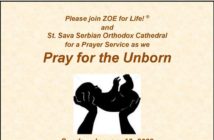Source: Christian Science Monitor
Despite record declines in religious affiliation, more Americans pray than 30 years ago. Why? Researchers say those who pray find prayer brings spiritual meaning and understanding.
As they have for decades, tens of thousands of Christians around the globe and of different denominations gathered March 6 for the annual, ecumenical “World Day of Prayer.” The event, which this year focused on the meaning of Jesus washing his disciples’ feet, drew little media attention. But so, too, do many other aspects of prayer.
Take this little-noticed trend in the United States: Even though church attendance and religious affiliation have reached record lows, the percentage of people who pray at least once a day has actually gone up – from 54 to 57 percent – over the past three decades, according to the 2014 General Social Survey, which is funded mainly by the National Science Foundation. About 3 out of 4 Americans pray at least once a week.
“The stability of prayer contrasts sharply with erosion on other measures of religious commitment,” commented the Washington Post in reporting the survey’s results. Even among young people, or the Millennials who have been far less church-oriented than their parents were at the same age, praying remains almost as frequent in their lives as older people.
Another 2014 survey, done by the Christian group Lifeway Research, found about two-thirds of Americans say they pray at least once a month. More than a third of those who pray say they pray for their enemies or those who have mistreated them.
One researcher of prayer, Elizabeth Drescher atSanta Clara University, finds that among those who cite no religious affiliation, prayer is “the only traditional religious practice that continues to be seen as spiritually meaningful.”
“Facebook pages focusing on prayer are among the most popular and engaging on the platform, and prayer activity is a robust substratum of activity on Twitter across religious traditions and ideologies,” she writes. “Likewise, hundreds of smartphone and tablet computer apps have been developed in the past five years to support the prayer practices of believers, seekers, and skeptics alike.”
While many Christians pray to get something in their lives, Max Lucado, author of a new book “Before Amen: The Power of a Simple Prayer,” explains that the purpose of prayer is to ask God to do what is right, with humility and trust.
“God hears our prayers and the power of prayer doesn’t depend upon the one who prays, but upon the One who hears the prayer,” he tells the magazine Christianity Today.
A famous Anglican theologian, N. T Wright, explains that Jesus’s direction for prayer, as found in the Lord’s Prayer, is designed “to align oneself with his kingdom movement and to seek God’s power in furthering its ultimate fulfillment.”
“The Lord’s Prayer is the means by which the church celebrates what has been accomplished already in Christ and strains forward for what lies ahead,” he writes.
Christians and others who pray may not yet be following what the apostle Paul sought: to pray without ceasing and to be constant in one’s prayers. But the constancy and unceasing number of people in the US who do pray provides some evidence of the power of prayer in daily lives.
Whether done in secret or in public, such as at a “prayer day,” prayer still commands the attention of the faithful, if not the media.
[subscribe2]


